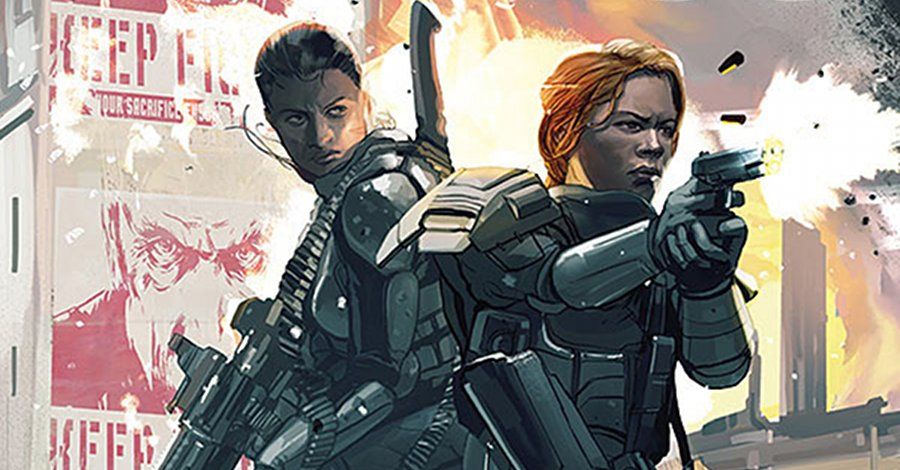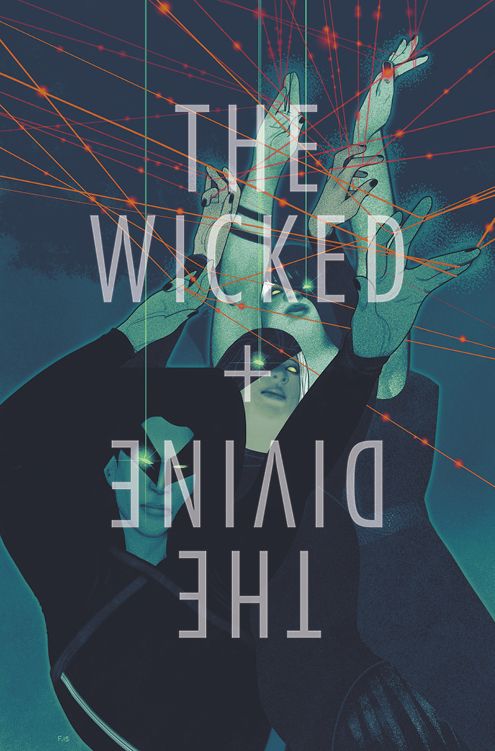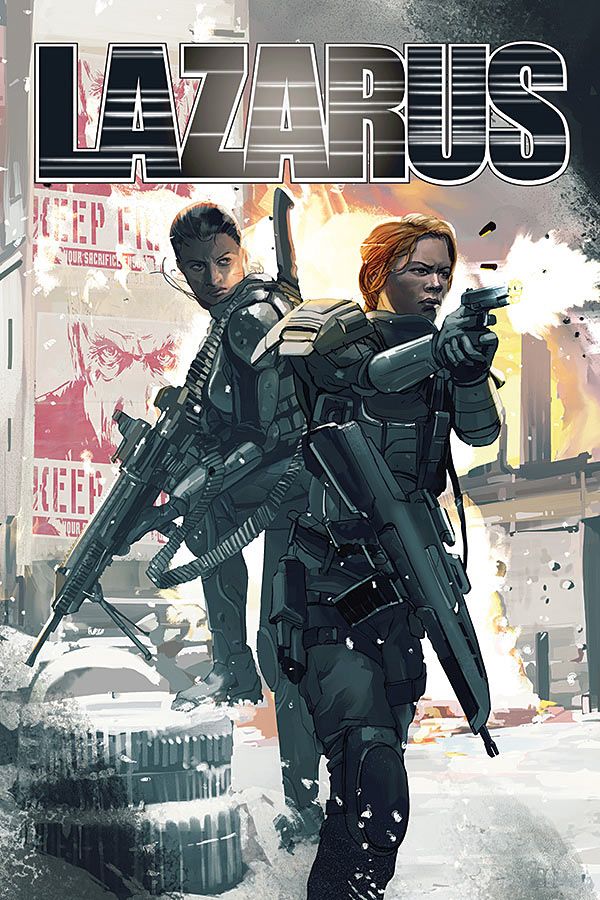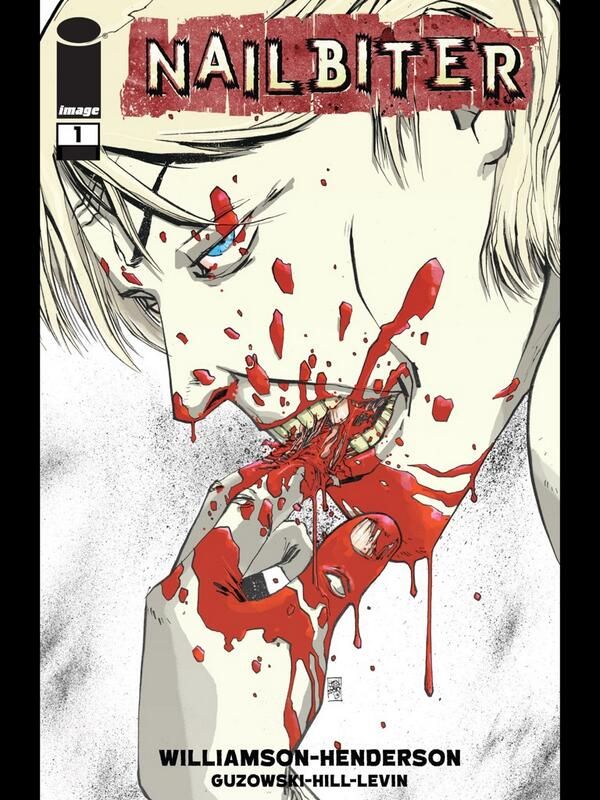When a group of Image Comics creators assemble, the discussions can range from creator rights to diversity to nuts-and-bolts comics making. Though when a heavy-hitting lineup of talent assembled for the recent "Your Favorite Comics" panel at Emerald City Comicon, things got pretty honest pretty fast.
Led by Image editor David Brothers, the panel included Frank Barbiere, Brandon Graham, Greg Rucka, Kieron Gillen, Joshua Williamson, Matt Fraction, Kurtis Wiebe and Rick Remender. And the moderator started the talk on an up front note.
"This table is all white guys," Brothers acknowledged as the group settled. "And I'm Black. Sometimes it works out that way, and it's disappointing, so hopefully when you come in the future it'll be a more diverse group. Comics should reflect the world we live in, right?"
The audience cheered in response, and with that, Brothers launched into panelist introductions.
"One of us," Fraction broke in, blocking the lights, "Is Kaiser Soze."
As the panel went over some of their upcoming books, Gillen shared a spoiler-ish image from an upcoming alternate cover for "The Wicked + The Divine" by Frazer Irving. "If you're reading [the book], there's a major spoiler on this cover. So close your eyes if you aren't caught up," the writer warned.
Soon, the room opened up to audience questions for which Brothers encouraged, "Don't be weird about it, but you can ask whatever you want."
One reader wondered if the creators had ever gone down a path where you realize you're writing a character from someone else's universe? And with a panel of all men, what do you do to develop female characters?
Rucka took the latter first, saying, "I write human beings. It's common sense. Gender and sexual orientated and religious upbringing or lack thereof are characteristics of a human being. I will say that I made a very concerted effort when I turned into writing female protagonists and one of the first rules I made was be honest. Sure, I'm happily married to my best friend and I'll turn to her when I want a check, but people are people. There's no magic to it. It's work, and it's just respect."
Gillen added, "It's empathy. You're surrounded by people of all sorts."
Barbiere returned to the initial query, saying, "For some projects it's really useful to use characters you know as a touchstone. I was writing a book recently, and I didn't get to see the art until it came out, so I just read the main character as Hellboy in FF7."
If you took a specific character and tried to write them, hopefully who you are would make them come out totally differently, Graham said.
Brothers turned the topic towards Wiebe who often relies on established tropes in his work. Is there a lot of research involved there? "I'm definitely a gamer. I think that's pretty obvious," the writer said. "But I don't want the comedy to rely on that. I want someone who isn't a gamer to find things funny. I poke fun at the tropes, but I want it to be as accessible as possible."
Another attendee asked whether the panel had any general advice about life and life in comics.
"Only do things you really, truly care about." Barbiere said. "Don't take projects you don't care about where you dot have anything to say. Don't be embarrassed of who you are and don't be ashamed of your opinions."
"I find fear of death a great motivator. I'm not joking." Gillen said.
"If you see a trailer for a movie and there's no dialogue, that's a bad movie. Don't see that," said Fraction.
Brothers offered: "Make your first comic no matter how bad it is and move on from there. If you want to do it, do. it. I guess that's advice from Nike?"
Graham took the conversation into some existential territory, saying, "Being aspiring is fun. I dropped out of high school, and I had nothing to do but read my brother's comic book collection and think about what I wanted to do. The rest of my life has been about getting back to that point. I try to pretend that I'm going back to my brother's collection and dream about what I want to do."
Rucka had a grounded approach to the query when he said, "I had a great teacher. Everyone in the course submitted stories and he tore me apart. I left his office in tears and called my late father sobbing. My dad was like, 'Was he right?' That's not the point! But the lesson that he really did flay me open and graft under the skin was write about whatever the hell you want, but if it's not emotionally true, it's crap. It's just cliche. You can set up moments we've all seen before, but unless you're honest with it -- and honestly comes from small things, not big things. It comes from the moment we've all forgotten our car keys, someone talking behind our back -- those things are true, and you can put those in any environment and that story is alive.
"The other thing is commitment -- believe in god or not, believe in talent or not, but sticking to it will elevate your work. The only way you can beat thousands of people trying to do the same thing is to get your ass in the chair more often. You can control how hard you work, and that's the make or break."
Graham joked, "Your teacher basically quoted 'Enter the Dragon'!"
Moving on, a fan asked how the creators determined their own personal "fuck yes, this is the project" moment while developing a comic.
Fraction said, "Whatever stays on the stove longest. I'm a lot like a raccoon; I get distracted by shiny things."
Rucka jumped in, "He also washes things a lot" to which Fraction replied "And I live in a tree!"
Wiebe noted that when developing a project "I have two stages: I'll figure out the first part, get this idea of things, and I figure out the hook but not the twist. Once I figure out the twist, that's when I get it." Williamson added to that that his new Image series "Nailbiter" got rejected twice...until he figured out the twist.
Someone wondered if the freedom offered creators by Image could become a bit overwhelming. "God no. It's heaven," declared Rucka. He then said he doesn't miss working on a stroyline for months and months to have it rejected because someone else at the company is working on an event.
Though Remender then stepped in with the honest admission that he's always "fighting the urge to make them all pornography." On a more serious front, he said getting a handle on a creator-owned project was all about "purity of intention. They are very different processes. It's a lot more work because it's all brand-new and building up three-dimensional characters you believe in...It's very fulfilling when you nail it and it's yours and you and your collaborator can own this thing and make something that didn't exist before."
Fraction noted that "The pride of ownership is very intense" comparing the process of creator owned versus corporate comics to the difference between turning a marathon and running a relay race. "It's your job to go from point A to point A. It's a team effort -- part of a larger functioning apparatus as opposed to the sky being the limit. It's apples and oranges...not to be a writer using cliches."
The writer then added, "[The big publishers] don't let you do nearly as many cum jokes when you work for them."
The sexy talk turned the panel discussion towards fan works based on their characters and whether the panel followed that kind of thing. Wiebe noted that there's a porn blog somebody does with two of his characters from "Rat Queens." "It is top notch," he said.
Rucka said of fan fiction, "You're basically saying, 'Here's this enormously passionate talented community'" and that can't be a bad thing. "I came across a 'Lazarus' short story someone had written, and it was a lovely, tight little piece. I was overwhelmed to think that you had done something somebody else connected with on some level -- viscerally enough that they were moved to create something. That's one of the rarest honors you can have."
Gillen called his "Wicked + Divine" cosplayers "so weird and inspiring an beautiful" while Fraction noted, "We dad our first Suzie [from 'Sex Criminals'] cosplayer here last year. This show is super special for that kind of thing. It's really humbling and gratifying."





